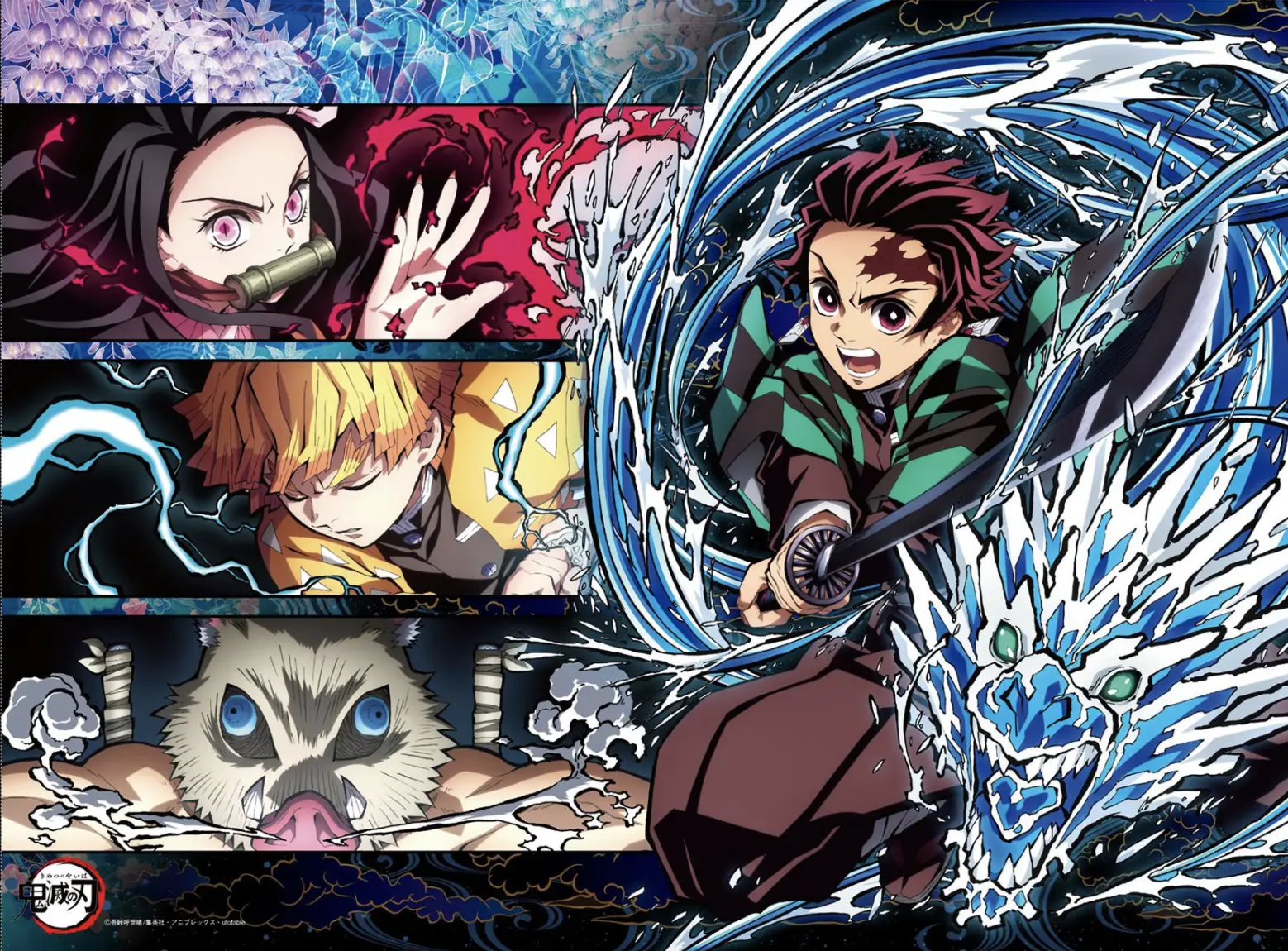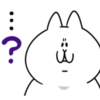

What is “Demon Slayer”?
Information
The manga was published in Weekly Shonen Jump from 2016 to 2020. It was set in the Taisho era. The protagonist of Demon Slayer fights with demons in order to find a way to turn his sister, who has been turned into a demon, back into a human. The total number of Demon Slayer copies sold exceeded 80 million as of July 2020.
Like Japanese folk tales, Demon Slayer’s storyline is cruel and miserable
At the beginning of the series, some people thought that the pessimistic storyline of Kimetsu no Yaiba and the numerous deaths that appeared in the series would make it impossible to continue the publishing in Weekly Shonen Jump. However, these sad and cruel storyline is one of the factors why Demon Slayer won the hearts of many people.
Let’s dive into some Japanese folklore and folk tales. In the many popular stories like Cinderella” and “Sleeping Beauty”, happy endings always come in the end. But Japanese folk tales are different. For example, there are stories such as “Tsuru no Ongaeshi” and “Kaguyahime”. In both stories, the protagonists were separated from their loved ones at the end. Other famous Japanese folktales include “Ubasutezan”, “Tongue Cutting Sparrow”, “Mount Kachi Kachi”, and “Urashima Taro”. These stories also end in various miserable situations.
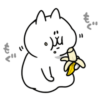
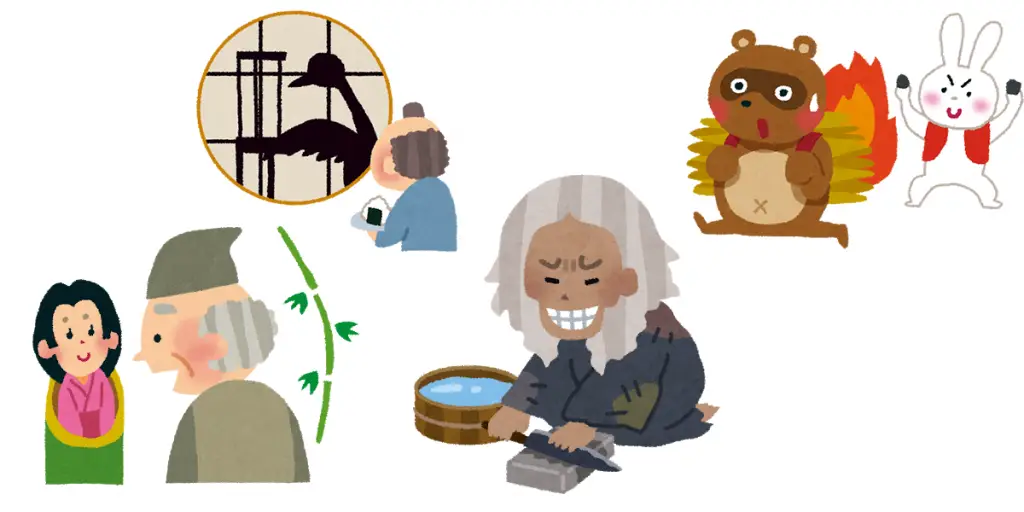
Now, while remembering this Japanese feeling, let’s look into the story of “Demon Slayer”. Although it is a so-called classic shonen manga as “The protagonist gets stronger and defeats the enemy”, Demon Slayer also displays “misery and cruelty” very well making it characteristic work.
-
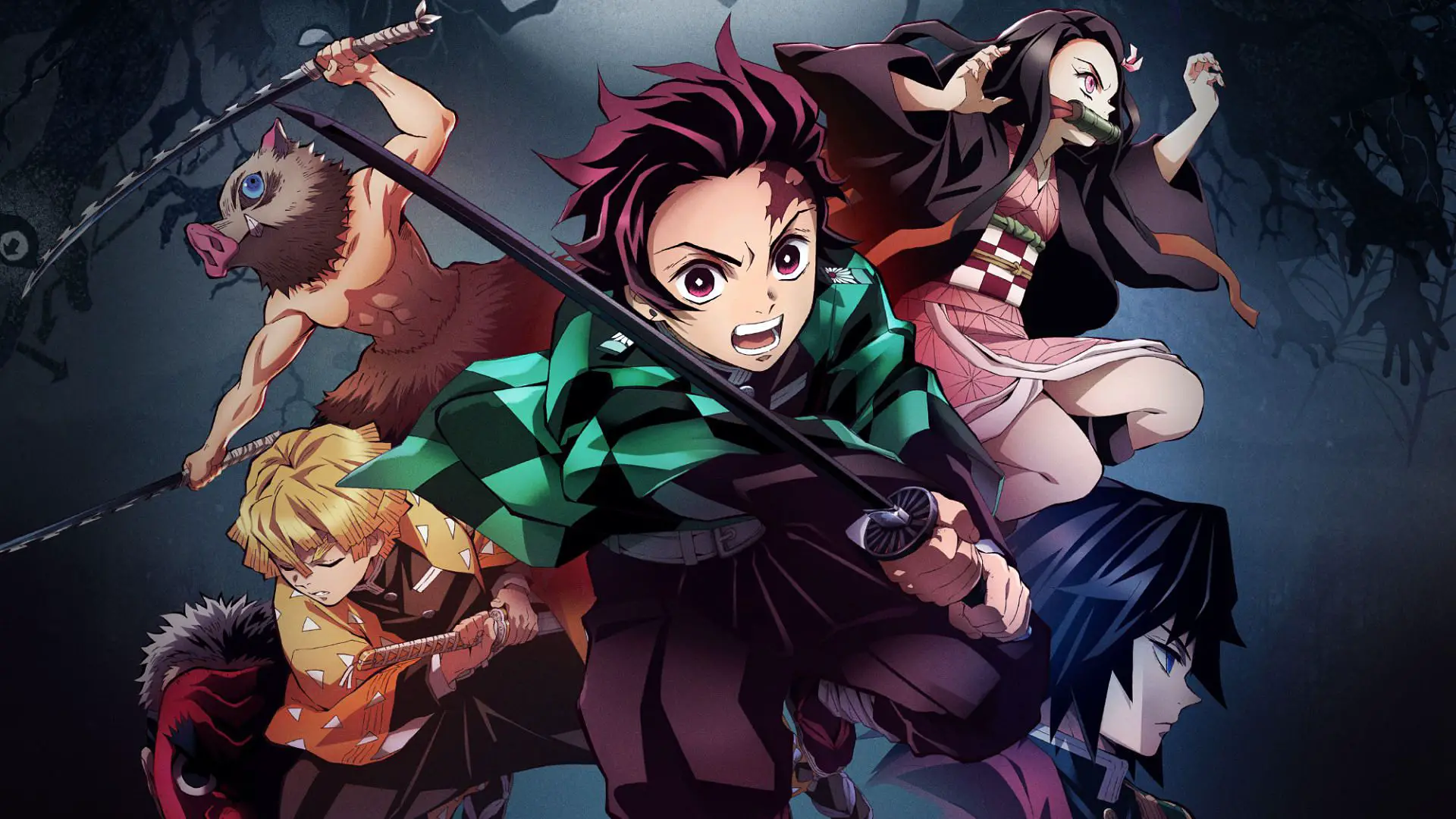
-
Three reasons why Kimetsu no Yaiba is famous all over Japan [Demon Slayer]
It is a very popular manga in Japan. It is an action-adventure manga set in the Taisho era of Japan and depicts the battle between man-eating "demons" and the demon-killing squad "Demon Slaying Corps" against them.
Read more
Demon Slayer vs One Piece storyline
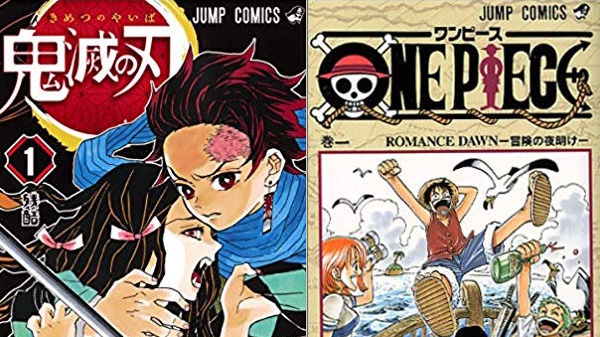
The Story of the Demon Slayer
While the story is based on the main character’s growth, there are many negative scenes of frustration, humiliation, resentment, and death for each of the characters. By including funny gag elements in between the pessimistic developments and serious scenes, “Demon Slayer” suppresses a dark impression.
The Story of ONE PIECE
The joy and sorrow of the characters are included in the story of the protagonist’s growth. Although there are some negative scenes, One Piece focuses on the bond of friends and has bright energetic development.
Both "Demon Slayer" and "One Piece" focuses on the growth of the protagonist, but they are the exact opposite. The fact that “Demon Slayer”, a story which includes revenge, is gaining popularity nowadays seems to correspond to the dissatisfaction with the life and dissatisfaction in society that has been spreading in Japan in recent years.
The Identity of Demon in Japanese Folklore
In addition to these negative storylines, the portrayal of the demon is an essential factor of the popularity of Demon Slayer.
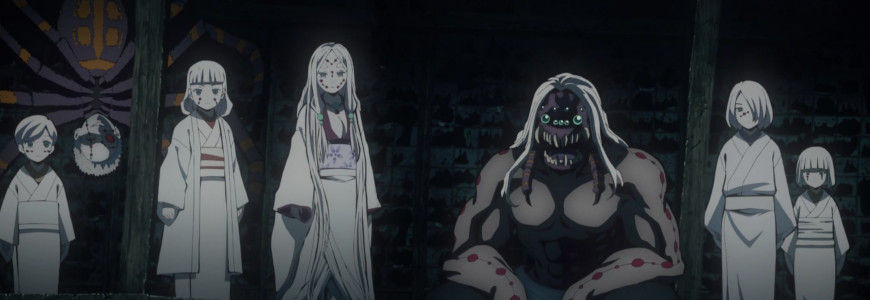
The demons of Kimetsu no Yaiba, with their diverse abilities, appearances, and stories, are different from the image of red and blue demons that Japanese know.
The protagonist’s younger sister, Nezuko, is a demon with a good heart and fights along with the protagonists against demons. Aren’t demons supposed to be “evil”? Let's trace the history of the demon's identity.
Demon was a divine spiritual being

The origin of the demon is not known, but demon-like beings were depicted in old scripts in Japan from old times. The first document in which the kanji character for “demon” appeared was “Nihon Shoki” (720). At this point, the word “demon” was not read as “demon” and the meaning was different. In the Manyoshu (The Anthology of Manyoshu) (from the late Nara period onwards), the kanji character for “demon” was sometimes read as “thing”. The word “thing” here refers to an invisible supernatural power that is difficult to express directly.
We can assume that demons were close to the gods. In Tottori Prefecture, demons are worshipped as “strong ones” who protected the village, and in Aomori Prefecture, demons are enshrined in shrines to thank them for their good deeds. Also, demons appear in the “Flower Festival” in the mountains of Aichi Prefecture, where they said to bring good in the new year.
Point!
Demons were treated as gods of good fortune, or as divine spirits capable of wielding great power.
Demons became visible creatures
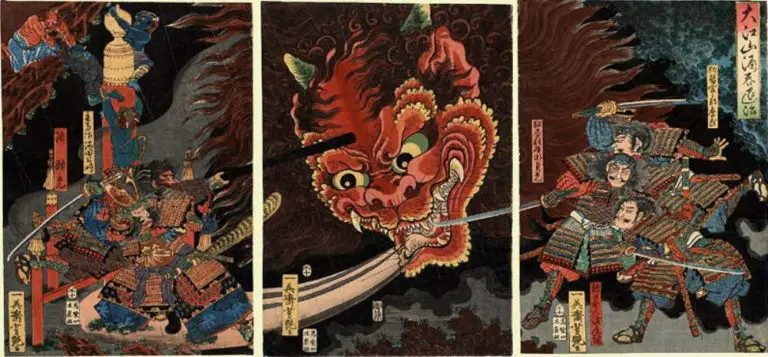
It wasn’t until after the Heian period that the “demons” became visible creatures. Demons were already portrayed as “evil things,” but most of them were invisible and terrifying (supernatural) until the Heian period. In the Middle Ages, however, the demon was transformed into a “deformed thing” from influences of Buddhism and other sources. In ceremonies, they were treated as “pollution”, in Noh theater, they were depicted as something revengeful spirit or as something from hell.
Originally, these beings were “forces” that had no form, but through the performing arts and rituals, they were transformed into “visible objects” that could be turned into humans. As a result of this, they were defined as “evil” in an easily understandable way. As a result, demons became beings that can be controlled by humans.
However, the demons depicted in “Demon Slayer” are so strong that they cannot be controlled by humans. How do we fight these uncontrollable demons? In the manga, the protagonists struggle with demons. This different “demon-slaying story” for us is what makes the story so unexpected and thrillingly interesting.
-
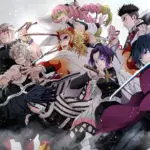
-
The top 10 strongest Demon Slayer Characters Ranked by Japanese anime geek
Who is the strongest character in "Demon Slayer"? In this article, I ranked the top 10 strongest characters of "Demon Slayer".
Read more
Demon symbolizes anxiety and hopes for a society in Japan


The protagonist’s nemesis, Kibutsuji Musan, has powerful demon subordinates called the Twelve Demon Months. They were originally human, but out of despair and resentment towards humans and society, they decided to become demons. Despair and resentment, which is invisible to the eye, became visible. This is the true identity of the demons, as author Komatsu suggests.
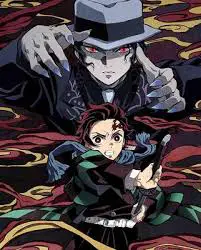
Also, in Komatsu's book, it is said that the demon’s recognition as a “demon” is from the Heian period (794-1192), which coincides with the time when the word “demon” began to be spread in Japan.
Demon Slayer is a new folktale form of 2020
“Demon Slayer” is set in the Taisho era (1912-1926), but the demons depicted in the story have something in common with the friction and distortion of human relations in modern society. The demons that the protagonists are fighting against are the real-life problems that are visualized. When we see it in this light, we unconsciously empathize with the demons that are being mourned and the protagonists’ efforts to confront these problems, as well as with our struggles in modern society.
-

-
Kimetsu no Yaiba Infinity (Mugen)Train plot and spoilers! [Demon Slayer]
Kamado Tanjiro and his friends boarded the Infinity train under the crow's orders and met up with Rengoku Kyojuro, aka "Enbashira".
Read more

